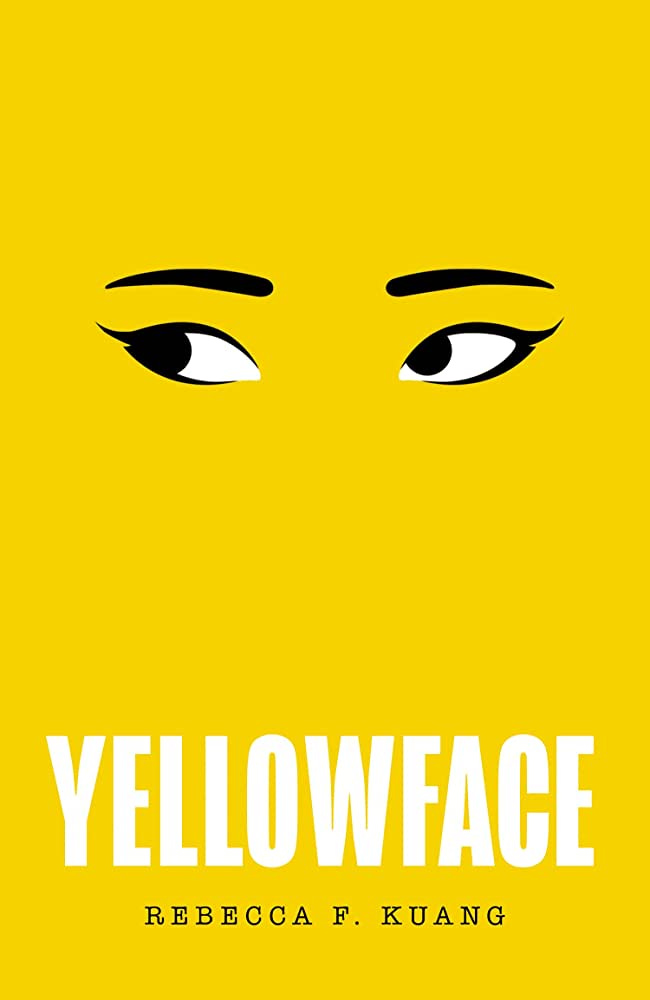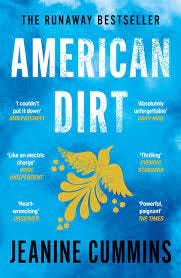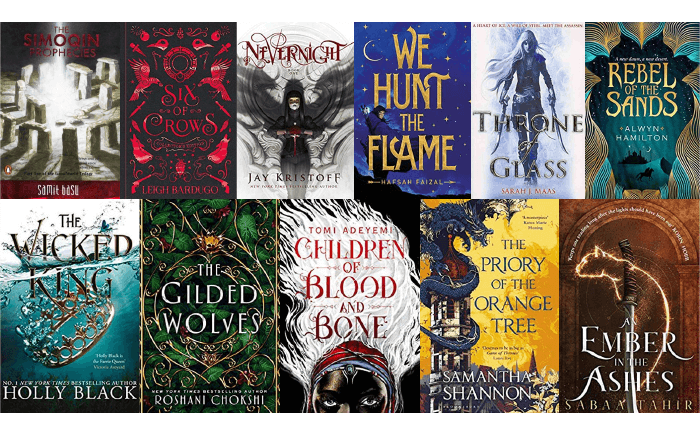[#5] Yellowface: The Cultural Suspense Literary Thriller Book that Everyone is talking about
By Devki Pande
What’s great about Yellowface is that at its root, it’s a book of cultural anthropology in which every chapter, every interaction, and every situation that the protagonist, June Hayward finds herself in, is tackling the question of: what is a writer allowed to write? What does it mean to steal an idea? It is the exacting nature of each scene which makes the story so fast-paced, despite the literary genre being a departure for Kuang, who has written fantasy in her previous four books.
A quick sum up: June Hayward is a white woman, who is a friend of literary golden girl Athena Liu, who is Chinese American. June’s jealousy of Athena stems from the fact that they started together in the same fiction seminar in undergrad, except June churned out a book no one wanted, and now earns money by tutoring kids from the Veritas Institute, while Athena's debut novel was picked up by Penguin Random House in a six-figure deal, and she’s put out hit after hit since then. Strangely, they’ve remained friends. During a drunken night together, Athena dies, choking on a pandan pancake in her house. June tries to save her. But when she can’t save her, she decides to use the moment – she steals the manuscript in Athena’s study and decides to pass it off as her own. It's a book about the Chinese labour corps, told from multiple perspectives, which June decides to finish, 'sharpen', and present to her agent as her own work. It’s sold for six figures, profiled by the New York Times, and suddenly, June has what she’s always wanted – literary superstardom. Or does she?
1. Each scene from this moment onwards is answering a question: what stories get to be told, and who is allowed to tell them?
2. What makes the novel suspenseful is that June Hayward, repackaged as Juniper Song by her editor, to make her ethnicity more ambiguous to sell a book about China, knows literally zilch about the cultural sea that she is wading into. Like – okay, she’s done her research. She’s read all the books cited by Athena in the manuscript. But since she’s not Chinese, there are some things that she’ll never understand.
3. What makes the book as unputdownable as watching a train hurl itself over a cliff is that even June doesn’t know what she does and doesn’t know. She thinks that because she’s done the reading, it’s enough. And that’s what makes her dangerous. In rewriting Athena’s book, she rewrites the Caucasian characters as softer, more sympathetic. She puts a blanket over all the rage. And she doesn’t even see it. In her head, she’s writing a good story.
The American Dirt Controversy
When you read Yellowface, it brings to light a similar controversy that had erupted around the book American Dirt, when the writer said ‘I wish someone browner than me had written it.’ The main critique of American Dirt was that it fetishized the pain of its Mexican characters. The question raised was: why did the publishing industry put their money behind this book on Mexican immigration, written by a non-Mexican person when books on the topic have been written by Mexican authors?
There’s one scene that I wish had been explored further in Yellowface: a scene that originally Athena wrote of a Caucasian girl walking into a Chinese labour camp. As a Chinese person, Athena wrote the interaction in a certain way. But June amends it, and this is the scene that creates the most amount of buzz in all the conversations when the book is released. In Athena’s scenes, the Chinese corps stare at the Caucasian girl, never having seen such colours before on a person. In June’s scene, one Chinese soldier asks if he can kiss the Caucasian girl’s cheek, which she permits. In June's head, she envisioned a theme of love, of possible romance between two separate peoples. Athena is dead, so we don't know what her intention was. But I could fathom a guess.
This was when I wanted the book to break out of its literary fiction genre and become a critique instead. I wanted it to become academic and analytical and dismantle these two scenes, like taking apart two machines and comparing their nuts and bolts. I wanted to know everything about this choice. Why did Athena make her choices, and why did June in this scene?
June is ultimately discovered. But the repercussions that she faces are left to a future possibility. It was almost like all the conversations that Kuang wanted to raise in the book had been tackled, so now she could let go of the story. But although perhaps for Kuang, the book was a vessel of conversation, I got attached to June’s arc. I wanted a deeper exploration of her ultimate fate and the consequences she faces. Does she ever manage to recover? What does she do after the world gets to know what she did? I wish there was an epilogue, but at the same time, I get why there wasn't any. An epilogue would have suggested that there is an answer to the who is allowed to tell what story question, when in reality, the conversation is ongoing, evolving.
Hyperlocalisation in stories
RF Kuang has created her own genre where she uses fact-based history and culture and spins it into a fantastical or speculative take. In Yellowface, rather than appropriating a story, which is more common, June outright steals an experience. Kuang's dark academia fantasy book, Babel, was born out of her own experience with translation, and in the book, translation is literally magic. The Poppy War – Kuang’s first book, was a fantastical take on the civil service exam: the ones who make it through the exam secure admission into a school that trains them to be generals in a magical China. Like the IAS exam that millions of Indians all over the country destroy themselves trying to clear. The stakes are clear – for millions, it’s a jump into a better life, a direct lift out of poverty, and many who take the exam come from extremely humble beginnings. For most, failing is not an option, like Rin.
This concept of giving a fresh cultural perspective to a well-known genre is being embraced by both the film and publishing world. Hyperlocalisation seems to be the way forward when it comes to storytelling. You can see this in the rising genre of folk horror, in which figures of terror become culturally specific entities, rather than simply ghosts or spirits. Yellowface isn't just a good story, it's also a cultural investigation – like Kantara, like Midsommar.
In the YA fantasy genre, the cultural or 'ethnic' fantasy world has a wider readership than ever. The bestseller, Children of Blood and Bone by Toni Adeyemi, draws on elements of Nigerian myths. Similarly, We Hunt the Flame is a YA fantasy inspired by the stories of Arabia, with a kingdom in danger, a treasure to be obtained, and an ancient evil.
In all these books, the crucial anchor points come together in a similar structure. What makes the story new, and what makes you want to read it is the society they are immersed in. In different cultures, different traits are valued, which then inform the hero, the villain, the magic, and all the characters in between.
Going back to Yellowface, the structure of the story is devastatingly simple. It’s the story of one girl obsessed with another. But what invigorates it is the fresh cultural perspective. It’s a book about impersonation, about wanting to be someone and write what they write, without realizing what it takes to be them. And this lack of knowing creeps into the scenes that June rewrites. Tweaks that she considers harmless, but contain a sea of difference. And June doesn’t even know it.





